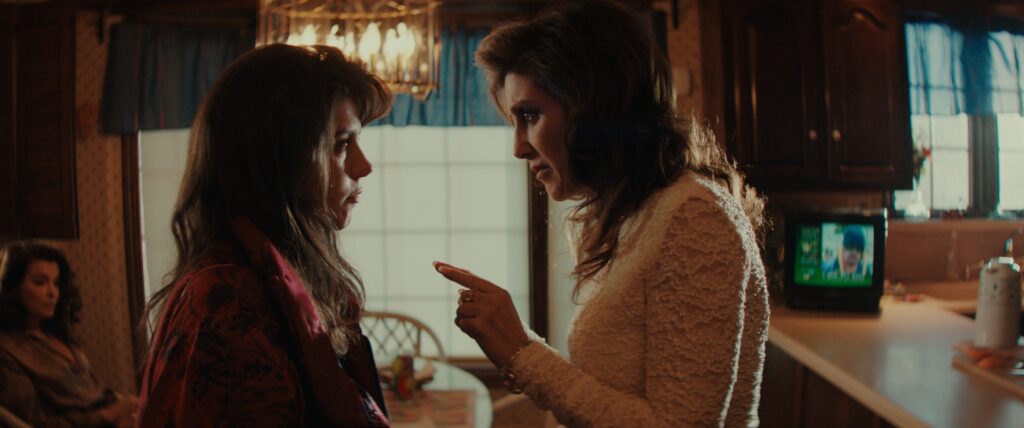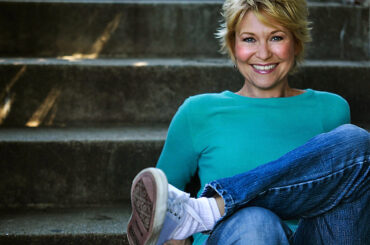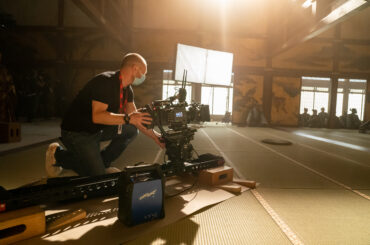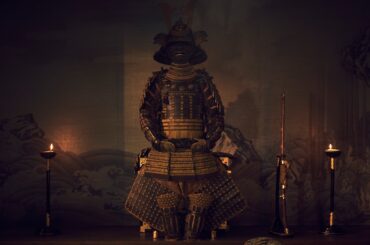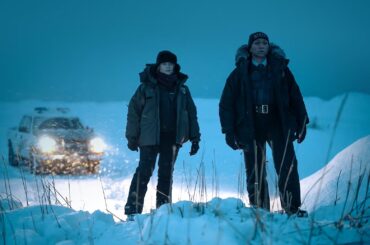
Jennifer Esposito had a story burning to get out. That’s the reason she wrote and directed Fresh Kills, a mob story about the characters usually written to elicit vulnerable reactions out of the male protagonists. She follows the mother and the daughters as they confront their own moral ambiguity in a world and family of crime. Esposito tells their story on Staten Island.
In short, Fresh Kills is just damn good drama that audiences, including Esposito, want to see more of in theaters. “The audience is there,” Esposito told Immersive. “They just want better work. They want to see themselves on the screen. Men and women are going [to Fresh Kills] and seeing their family, seeing their younger selves, seeing their older self, seeing parts of themselves, and that’s what this medium is supposed to be.”
Esposito misses stories like that, which is why she did more than write, direct, and co-star in Fresh Kills. The Crash and Summer of Sam star mortgaged her own home to finance the film. She bet on a vision, which continues to find fans among critics and audiences.
Recently, Esposito spoke with Immersive Media about making her directorial debut, protecting performances on set and in post, and the kind of filmmaker she wants to be.
Sometimes when actors make their directorial debuts, they’re very small in scope. You told a story that spans years. There’s a genre element. Did you ever think, if I’m going to make a movie, I’m not going to play it safe?
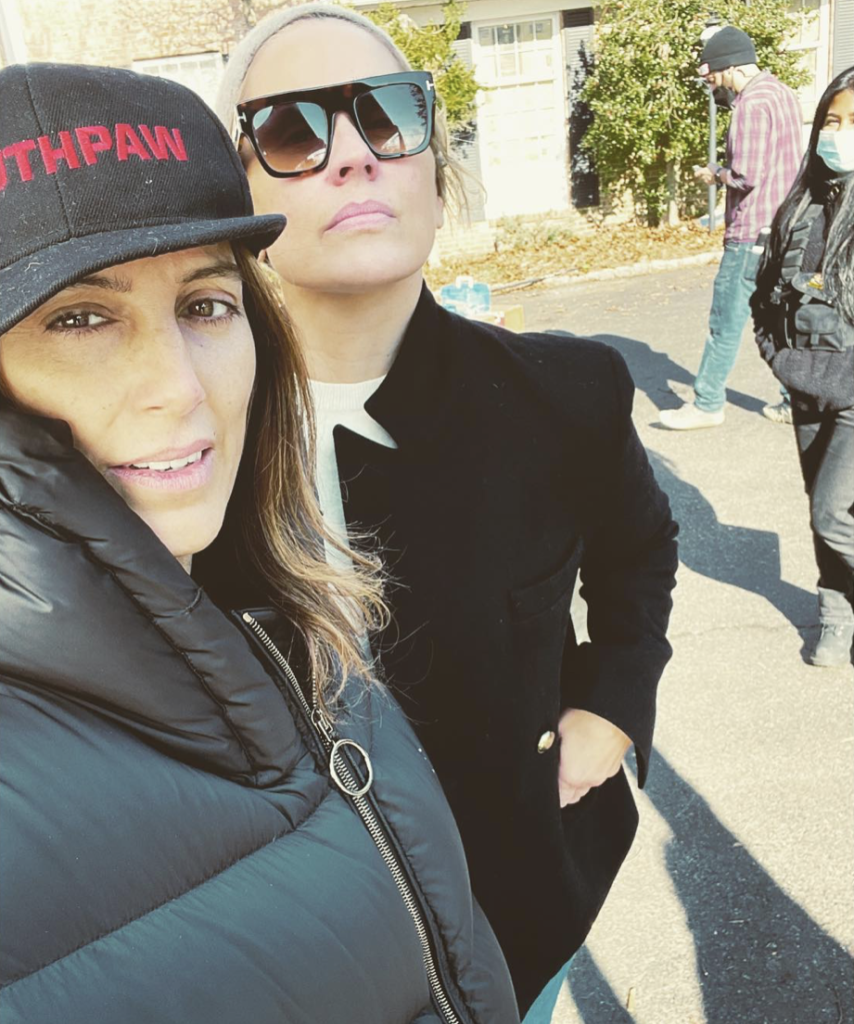
Well, it was just the story. It was just the story I had to tell, so I don’t think I thought in terms of that. And for me, the containment was the trapped lead character of Rose. So, to me, that felt very contained. But I did know a female taking on the mafia genre is not something we’ve seen before, and we never see the female perspective from the women in this world. So, I knew that I was going to get a lot of comparisons. I knew that I was going to have a lot of struggle, that it was going to be a journey, and I knew that it needed to be something that was a burning desire to tell.
To me, this movie has nothing to do with the mafia. It has to do with family and the boxes we’re born into or put into by society, from gender or race or whatever. So, that’s what it’s really talking about to me. So again, it was just something I needed to tell. This wasn’t something like, “Hey, I want to direct something.” This was like, “I’ve been writing this for years, so it was just something that I needed to do.”
Women are often unfortunately the worst roles in most mobster movies. What questions did you have that you wanted to see answered or at least explored in this genre?
Well, exactly. We’ve seen these movies so many times. We see the woman’s hand come in on the table when the guys are all there and she leaves pastry or you see her on the pole and she’s naked. We’ve never really seen those women, except Carmela Soprano.
I grew up around a lot of this, not in my own family, but around me. I was really moved, scared and also questioned why the young women around me were so violently angry. I’m a very big “why?” person and I need to understand. I never could understand until I left many years later out on my own. I realized that anger felt familiar to me and I didn’t understand why.
And then, I realized it had nothing to do with their families. It had to do with them having no choice. They had no choice in it. To me, that’s what the movie is about. It’s about choosing what box, the boxes that you’re placed in and choosing whether or not you have a say in how you live your life.
When you watch the movie, you can tell how personal it is, even just very specific shots felt like memories. For example, staring at Christ in Church or the phone cord stretching during a serious phone call. Were there any specific images burned in your mind you just really wanted to film for Fresh Kills?
100%. Yes, that phone cord. I remember being with my DP and setting up shots prior and it just came out of my mouth because I remember seeing that phone cord and knowing that the tension in that phone cord and me being the one pulling it, and you’re always hush hush. And I said to my actresses, “You’re always afraid. You’re always afraid.” So anything that I could push to allow the audience to feel the way Rose is feeling, which is constantly afraid and seeing that thing just unturned and just unfold in this way, it just felt like, oh, something’s wrong. Something’s happening.
And then the thing you’re saying about the image of the Christ, grew up Catholic, and that was another box, if you’ve noticed. Those images, they’re drummed into your head, like fear. The movie is constant boxes of the religion, family, and being a good girl. He’s constantly hitting her on her head, patting her head, you’re a good girl.
Someone made a comment to me early on about why you constantly have your character Francine or someone saying, “My girls,” because it’s ownership. It was all done deliberately. It was done deliberately because she didn’t have a voice and no one really even spoke about it. So, that’s what I was going for.
When you did start writing, I imagine you had a big advantage given your acting career. For example, what you like or don’t like on the page. How did acting inform your writing?
It came all from character. Everything is in character with me. And that’s why I really went on this journey. I was so tired of seeing underdeveloped characters, especially for women and me being the actress, having to make something work that just wasn’t on the page, but having to make it work. So, I think that was an advantage to me all those years. I had to make things work, just make it work through character. Again, knowing the why. So that was definitely helpful.
I read countless scripts, but at the end of the day, like I said, it does come down to what are the wants, what are the needs? What do I need to say here? But also being an actress, having to do certain things that felt so forced and pandering to an audience, everything spelled out. If I wrote something like that, I would cringe because I know how hard it is to make those things real.
Not to give anything away, but at the end of the movie, I don’t think I would’ve been allowed to do that ending. You know what I’m saying? It wouldn’t have been allowed to do it the way I saw it growing up. This is what happened, this is the repercussion, and now we’re moving on. I don’t think I would’ve been able to do it.
I’m being evasive here, but it’s because I don’t want to give something away. Originally when I was writing the ending, it was all this melodrama. I literally was nauseated. I was like, nah… It made me so uncomfortable that I took it all out. It was like, “Nope, nope, nope, nope.” I love that about this, that it’s just honest.
I also don’t want to spoil anything, but there’s a scene at the end where you and your editor, Todd [Sandler], are protective of Emily Bader’s performance as Rose. It’s a vulnerable scene, and you both don’t cut away much. Again, as an actor, I imagine you know how to preserve a good performance in post, right?
Amen. That’s exactly it, because it becomes more about someone shot than about these characters and these people. So many people have commented on that, especially that last beat in the movie where she’s speaking to her father. I was very protective, and it works. She’s sitting there for a good beat. I didn’t want to slice it up, make it move faster.
To me, I think the beauty is in the silence. Those moments are why I think people like this [movie], it’s real. I didn’t manipulate it. This was two people having a conversation. That’s why it feels that way. You’re so used to seeing these cut, cut, cut, cut to push you into feeling something and it actually works against you instead of allowing things to happen, let people sit in that uncomfortable place before she takes her last words to him. You are sitting there, what are we going to say here? But that’s real. That’s real.
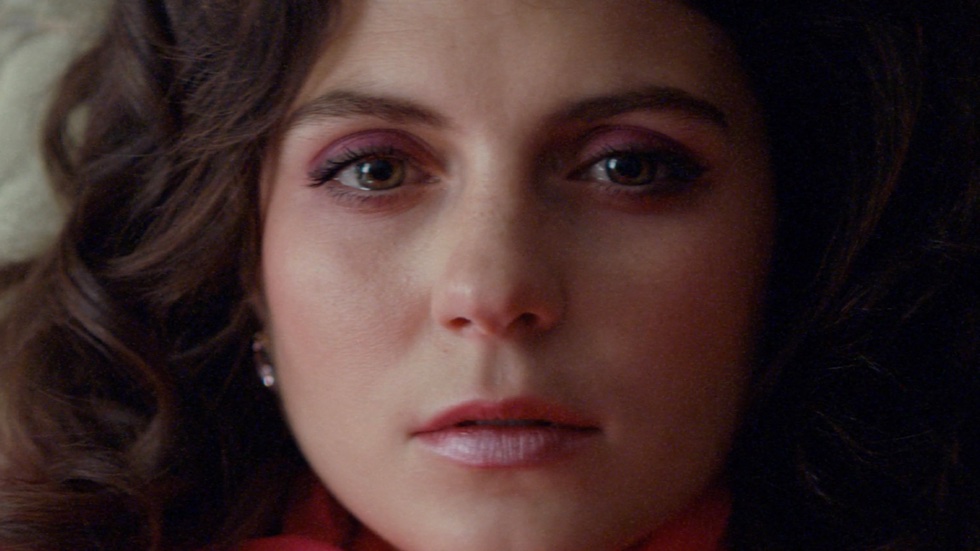
Playing a withdrawn character is such a fine line in movies. Some actors, even movie stars, can just be blank when they’re playing still or observant. What did you look for in casting? What qualities did you want for Rose’s silence?
Okay, so I gave all the actresses two or three scenes to audition. One of the scenes was one of the most important, and there were so many actresses that skipped it. They didn’t see the significance, and it was like the one where she’s at the wedding and she’s not talking and she’s just watching Joe at the table. And that scene was so difficult for people to do, and I knew that anybody who was going to get that scene was someone to look at. And she not only got that scene, she had the person filming it do a slow crawl into her face, into a closeup and just let it sit. I was like, this kid’s down a totally different level. You could see her thinking.
Emily is such a fantastic actress because you can see the wheels turning, but to still be extremely present, which is so hard to do. People come out of this movie and they scream about both performances, but Odessa has a more outrageous, in your face kind of performance. People don’t understand how difficult it is to do what Emily did.
Unrelated to Fresh Kills, I wanted to circle back to making dishonest scenes honest as a performer. When it’s not there on the page, in the past, how have you made it work? Are there tricks of the trade? As an actor, how do you overcome material or questionable creative choices?
I’ve definitely had to do that in my career for sure. Not all the time, but there were times. I’ve been a teacher on and off throughout my career, and I teach a lot now. I honestly love it because I care about the work. I always say to myself and them that it comes back to just being honest. You have to be honest.
Even in the most ridiculous of situations, if you’re playing into how bad it is or if you’re playing into a dumb situation, you are dead in the water. You have to make it as honest as you can. And in saying that, if it’s so absurd, you can nod to the absurdity, but still be honest, if that makes sense. You’re not trying to be like, there’s no elephant in the room. Yeah, there’s an elephant in the room, but I’m still going to show up honestly. You know what I mean? I think that’s the most important.
Again, that’s why I think so many people have written about these performances because they’re honest. They’re so honest. It’s having a conversation with your sister. These two sisters are speaking to each other. They’re the dad, the mom. These are conversations that we’ve heard before. So it all comes down to the honesty of the character, always.
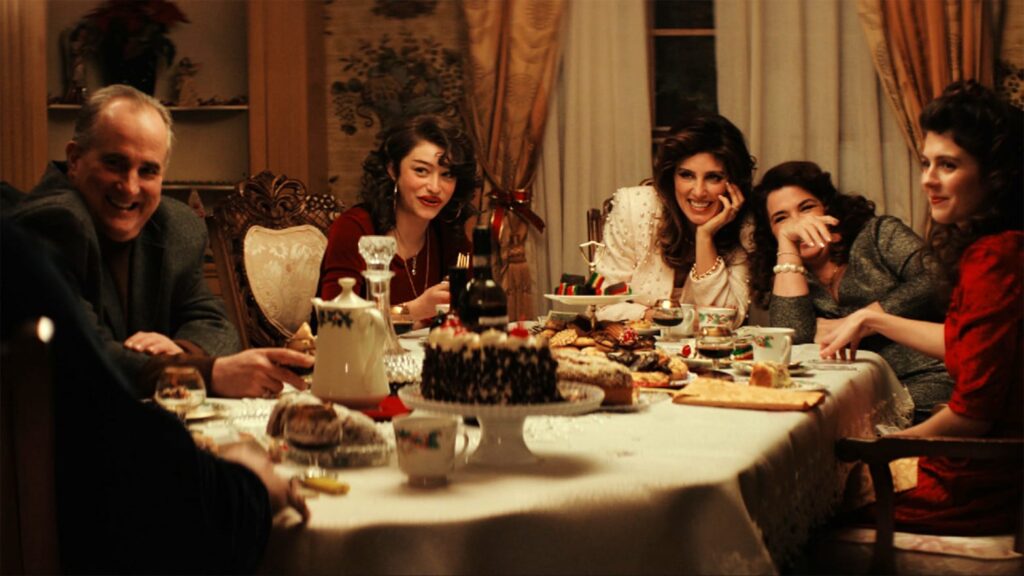
As someone who’s taught about acting, if you were going to teach a film course on directing now, what would your introductory class look like?
I would never be so arrogant to say that I would be ready to teach anything on directing. What I would say, it’s about character. Your shots are great, and I’m definitely telling a story with the camera, but at first, for me, it is all about that character. It’s all about the why’s in the scene. Every acting class I give, why? Why are you doing that? Why do you want that? So I came at it as myself looking at it. The camera was a character. What am I trying to say? What do I to show here? I want to show Rose’s claustrophobia in this house, to show that she’s struggling to get out.
She’s ready to confront him. She’s going to move opposite him. We’re going to cut things like that. Again, all came from character. The production design and the costume design came from character. They’re brilliant in the film. I think we had two very talented women [for both departments], but I gave them very clear instructions. It was, “I want the house to be a certain way and look like this because it’s the only place that Francine has that is hers, so she was going to make it as feminine and as gaudy and as ridiculous as she could.” That’s what drove us. It’s not just about, that’s a pretty peach or that peach color will look good on screen. It wasn’t about that. It all came from character. So, that’s what I would always fall back on.
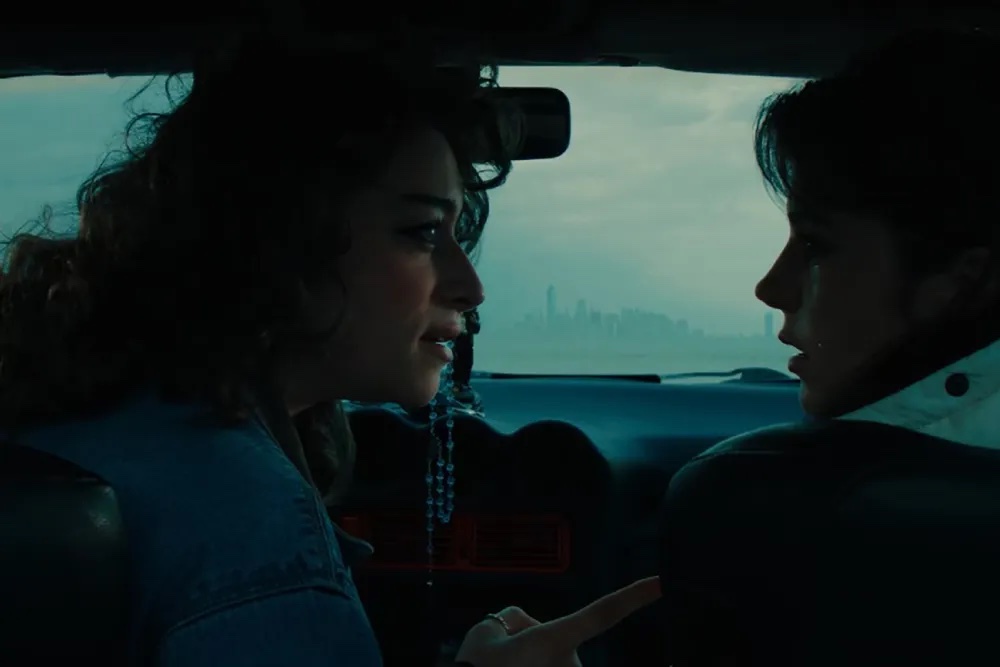
There’s a dark cloud over the movie. I don’t know if that’s just Staten Island, and I enjoy my time there, but there’s definitely something out of time about that place, too.
I have to say, when we started and people were like, go to Atlanta. We’ll go. I was like, you don’t understand Staten Island. There’s a very specific feeling there and energy there that you cannot escape. You just can’t. It’s a different tone and mentality. It’s a very tight knit community. But there’s also some very rough areas. And when back in the late eighties, nineties, it was all mafia and you just can’t capture that anywhere. You can’t make that. That’s not something you can make the energy of a place. I made my cast stay there, so they were like, where are we? Staten what? Because they’re both from Los Angeles, the California area.
You worked with one of the great professors, Spike Lee. You were in two great films of his, He Got Game and Summer of Sam. Can I ask, what did you learn from the professor? Any filmmaking lessons there that maybe helped you on this film?
I love Spike. I have a very warm place in my heart for him, because he was the first person to give me a real shot at great material. Summer of Sam’s great material. As a kid just coming out of school, acting school, that was a dream. I actually called him about this, like 20 years later, and said, “Hey, I got a script. I’d love you to read.” While he didn’t get to see the movie yet, and I don’t think he read it, he did pop up at the Tribeca Film Festival last year when I premiered, just to give his support and walk the carpet with me. I sobbed. I hope one day he does see it. It would really be a joy.
But honestly, I was so young doing those films. I don’t know if I picked up anything, but absolutely nothing I’d be able to pinpoint. But I absolutely remember saying, “This is it. This is what I want to do.” I knew enough that I knew that that’s what I wanted to get back to. That’s where I should have stayed in my career. Independent films, making these things that touch your heart, that’s who I am as an artist. That’s just who I am, and I should have stayed there. But I had this sense back then as a 20 something year old to know that I was in the presence of a master.
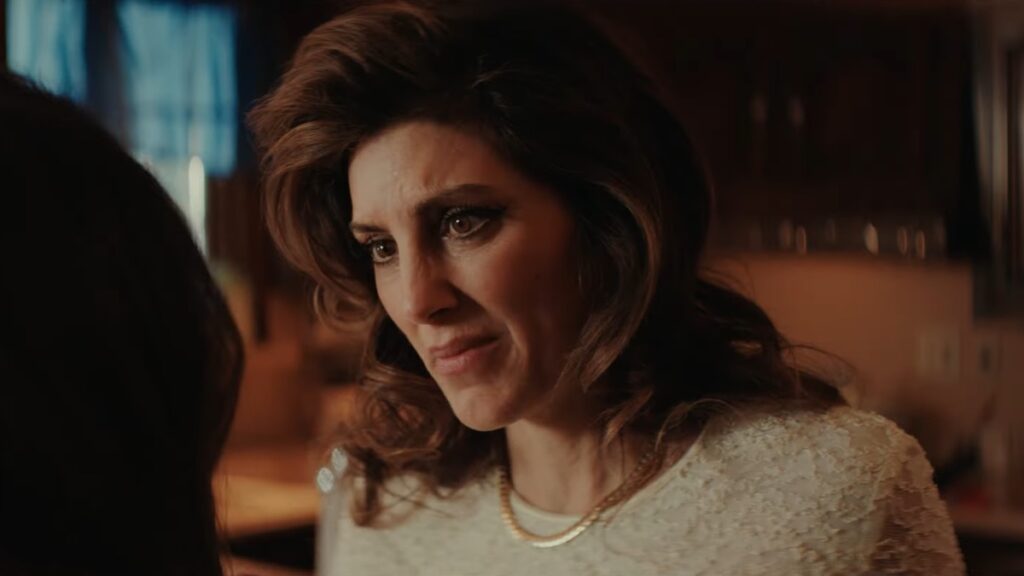
Looking ahead, what kind of stories do you want to continue to tell? What kind of filmmaker do you want to be?
This has taken over every inch of my life, just being a female in this genre. We’ve had so many hurdles that I haven’t been able to do the things that I really am passionate about. I have one screenplay that I cannot wait to get back to. I cannot wait to have part of my brain back to be able to go in because I found that I truly love this. You know, I wanted to go to NYU when I was younger, to study film, but I couldn’t afford it. I just went and studied acting, but I realized that this is the place that I really want to be. Listen, I want to tell stories that matter, then to sit in a movie theater when no one knows I’m there.
I want to hear applause after the movie and to hear cries and laughter, and then hear people want to talk about it. That’s all I ever wanted to do in this business. I didn’t get in it to be a star. I didn’t get in it to make tons of money. That was not the deal. I wanted to do exactly that. I sneak into movies all the time just to see reactions. It’s a joy for me, especially to hear that this movie is starting a conversation. That’s the filmmaker I want to be.
Well, I’ll just say, I’m always happy to see an entertaining drama like this.
My God, we used to have so many. Beautiful. Now it’s just, across the board, people are like, “We love this movie, but it’s a drama. No one wants drama.” It’s like, “Who’s nobody? That’s not true.”
I agree. This would’ve been a wide release in the ‘90s or early 2000s, too. That did make me a little sad.
Yes, it makes me very sad because that’s exactly what we’re fighting. We’re fighting. But look, the people have turned up and out for a little film. I say “little film” and people get so mad at me. They’re like, “This is not a little film.” I mean, in the scope of this big budget insanity, we are still small. We’re still around, too. It’s because the people want this. So yeah, I hope we stay a little bit longer.
Fresh Kills is now playing in theaters.


